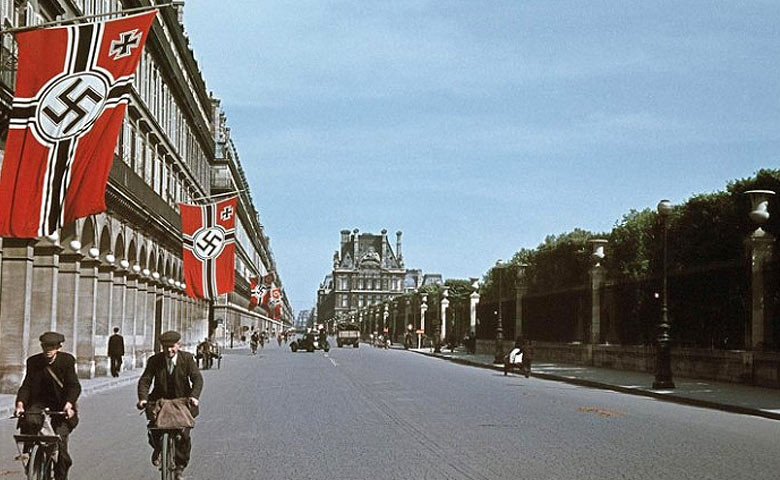I’m not particularly enamored of war fiction though my number one favorite these past few years is one (Anthony Doerr’s Pulitzer prize-winning All the Light We Cannot See). But an audiobook of Kristin Hannah’s The Nightingale was available to borrow on Libby and I was curious about a novel that merited a 4.8 rating from more than 30,000 Amazon readers. And since I had some time ago downloaded another popular war novel, Charles Belfoure’s The Paris Architect, for free, I thought I’d read that too and compare them.
Both stories are set in World War II Paris. World War II figures a lot in military fiction maybe because it involved practically the whole world and it’s still in many people’s living memory. And what better place to set them than Nazi-beleaguered Paris.
Both books are about heroism, but heroism that must be secret. I think that’s the biggest draw of war fiction. Not only does war offer a built in conflict, it gives characters a chance to do something extraordinary. Not all war stories are about heroism, of course (for example, these two I read earlier).
The Nightingale is a big bestseller. Many books (or authors) claim to be bestsellers if they appear in a top 20 or top 100 list once in some publication. The Nightingale made several bestseller lists; among them, the New York Times where its July, 2018 edition tells us it’s been on the list for 16 weeks. Quite likely, it stayed there longer. It will also grace big screens sometime in the near future. The success of this book isn’t a surprise. It’s well-written, its plot is engrossing and it pulls you in emotionally. But most of all, it celebrates heroism by bringing into it the realm of women’s experience as active agents in waging wars.
At its center are two sisters. Vianne is conventional and afraid to rock the war machine. Concerned initially with survival, she prefers to endure it by lying low in a small French village. Isabelle, the younger one, is impulsive, rebellious, expressive, aware of what is going on, and eager to help the French Resistance. Of the two, she is easily the more heroic figure. She takes on a daring mission that puts her in danger from the Nazis. Eventually caught, she suffers inhuman torture. But Vianne, in the end, gets drawn in a more covert way to the war effort. She rescues children whose parents are killed or taken to concentration camps.
For my taste, though, this novel is too sentimental and too long. Thoughts and feelings about the war by Isabelle and especially by Vianne are hammered in at various times. Over and over until they become old and tiresome.
The Paris Architect is no match for The Nightingale, but not because it sticks to the usual trope of war stories that daring acts are carried out by a hero, not a heroine. A talented but initially reluctant architect carves cleverly concealed hiding places for mostly rich French Jews inside great old apartments or houses. While its plot is refreshing, intriguing, and straightforward, it has a contrived feel to it. The story is plausible but it seems to be there to showcase the author’s skills (he is an architect). I also found its prose awkward at times and its characterization not as well rounded.
If you love war stories, you’ll probably find something to like in these two books.






